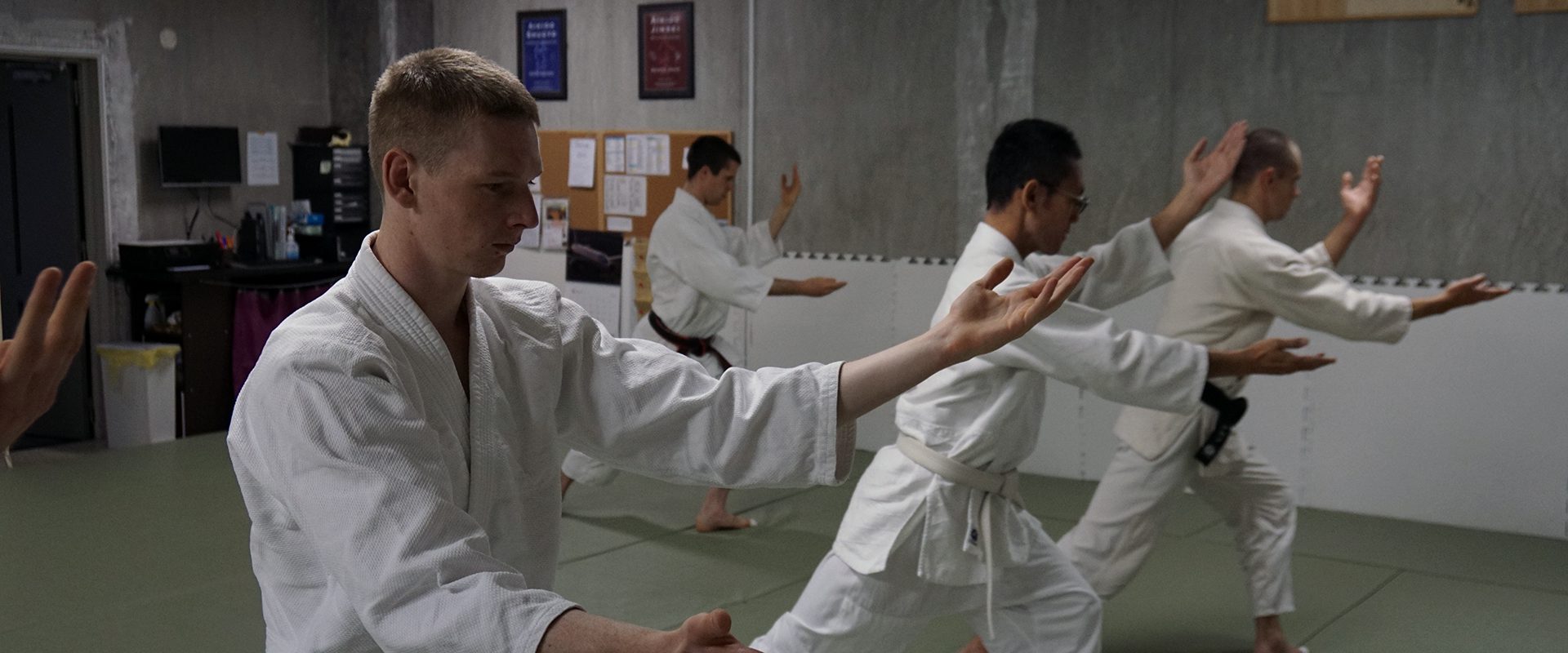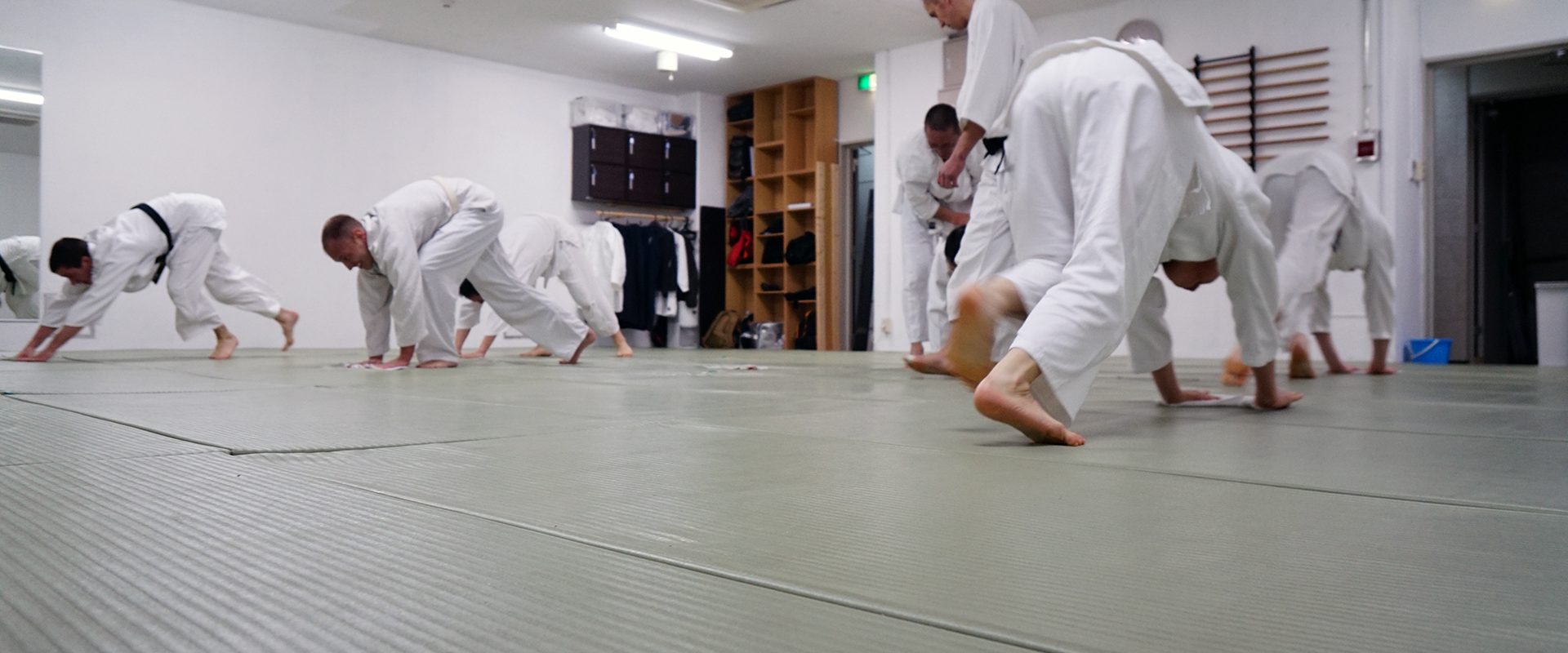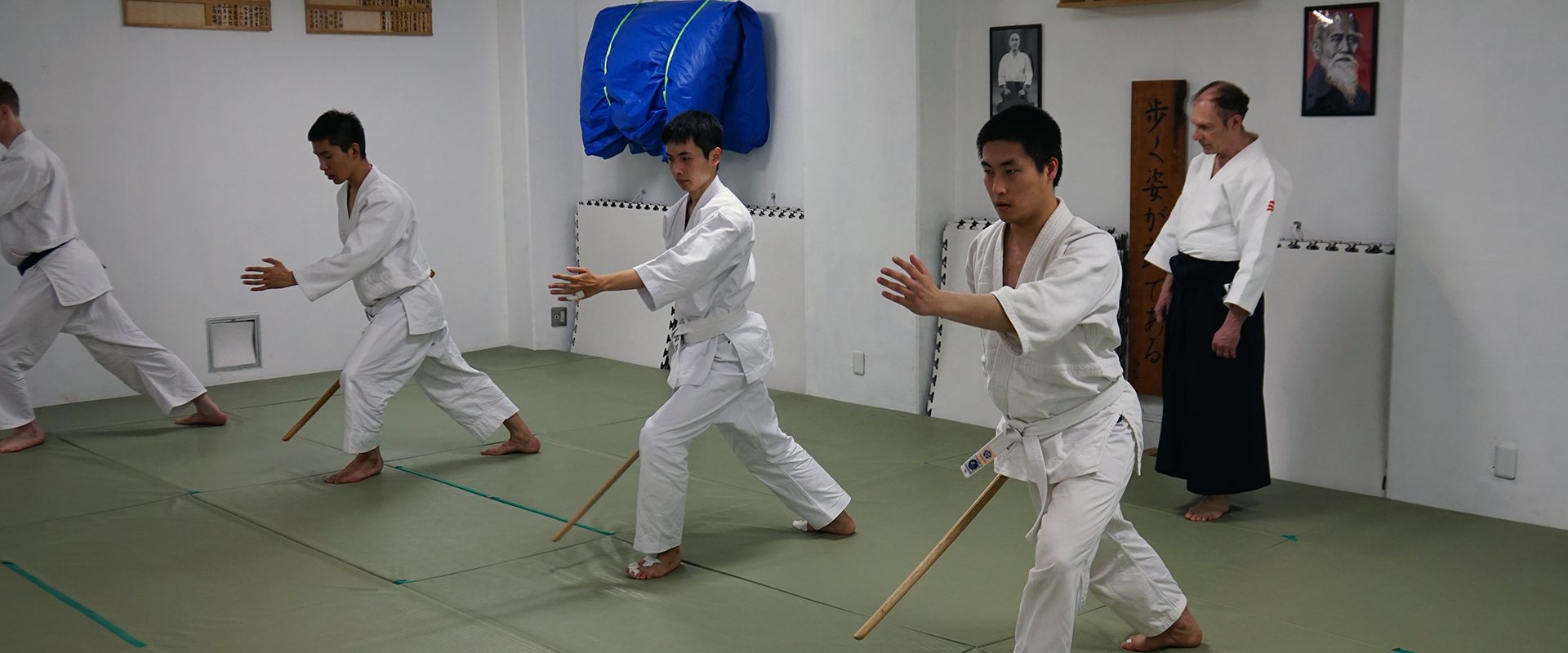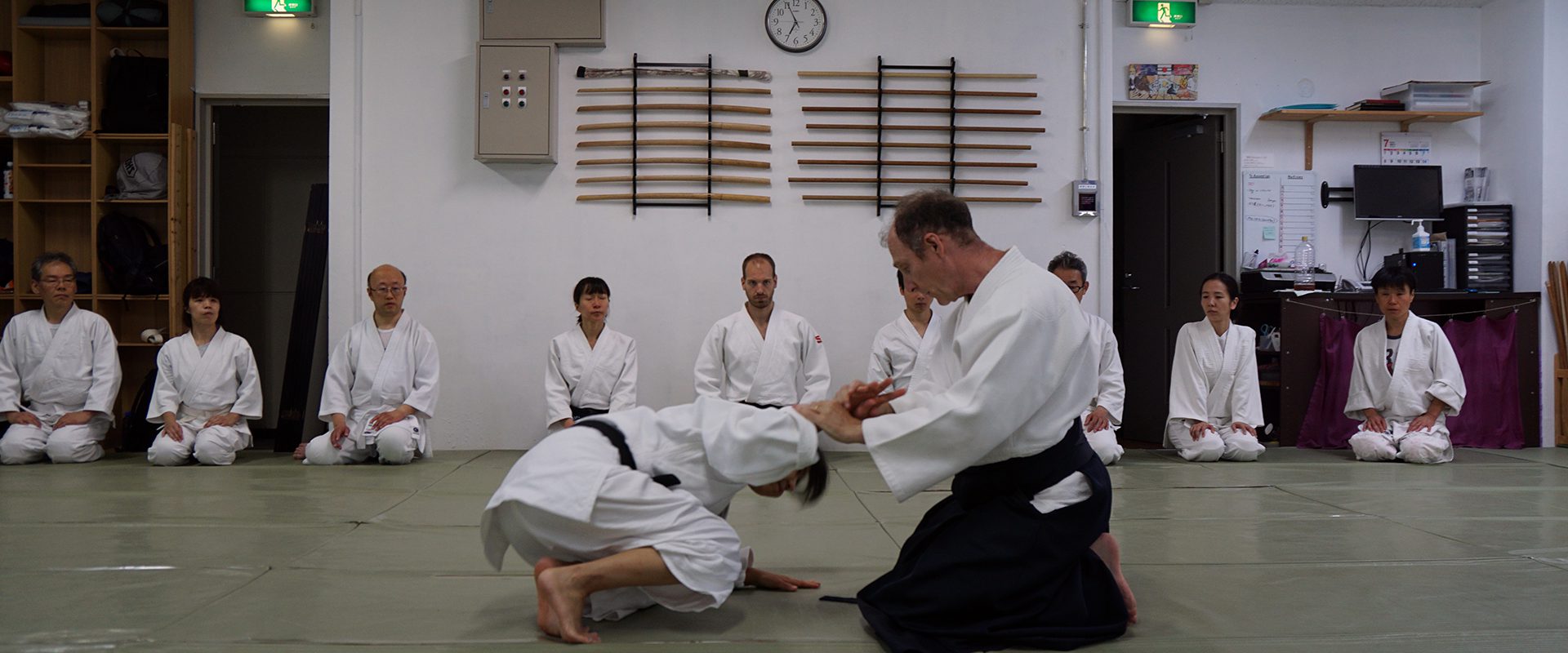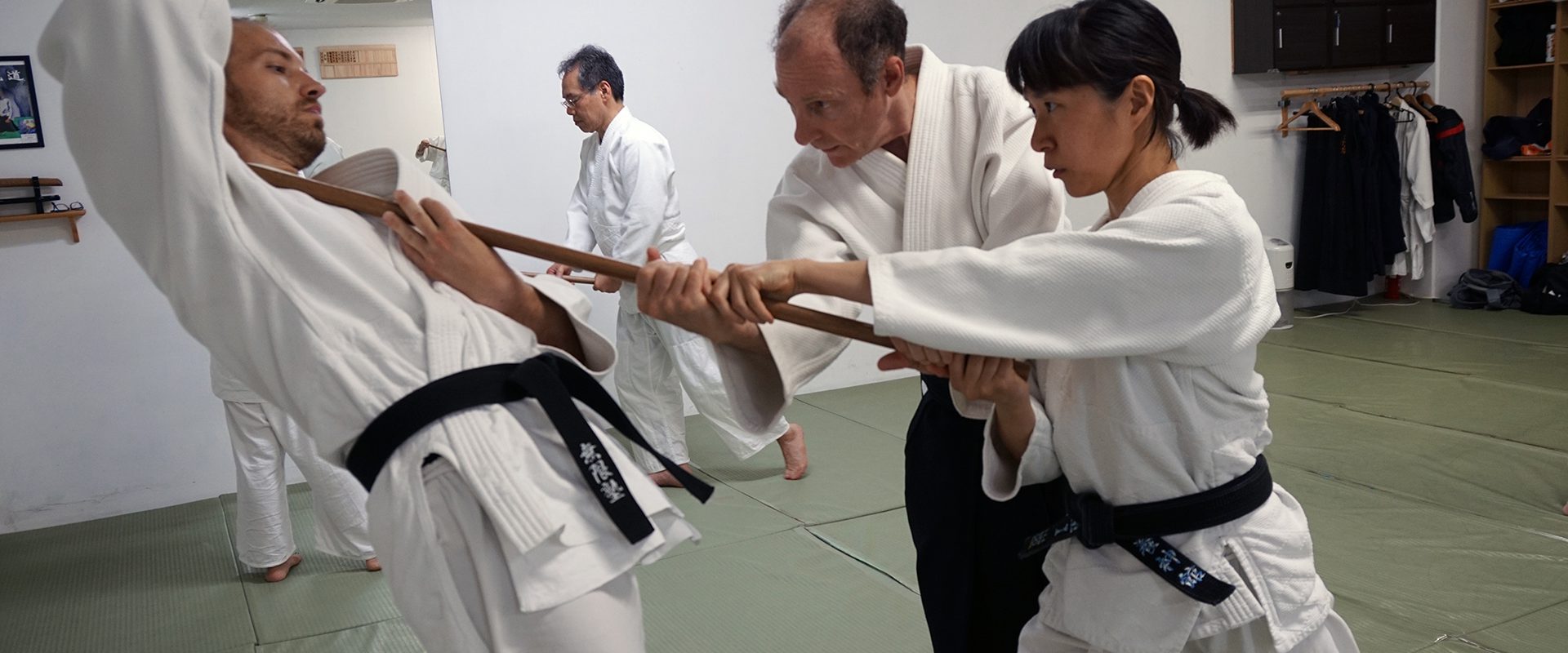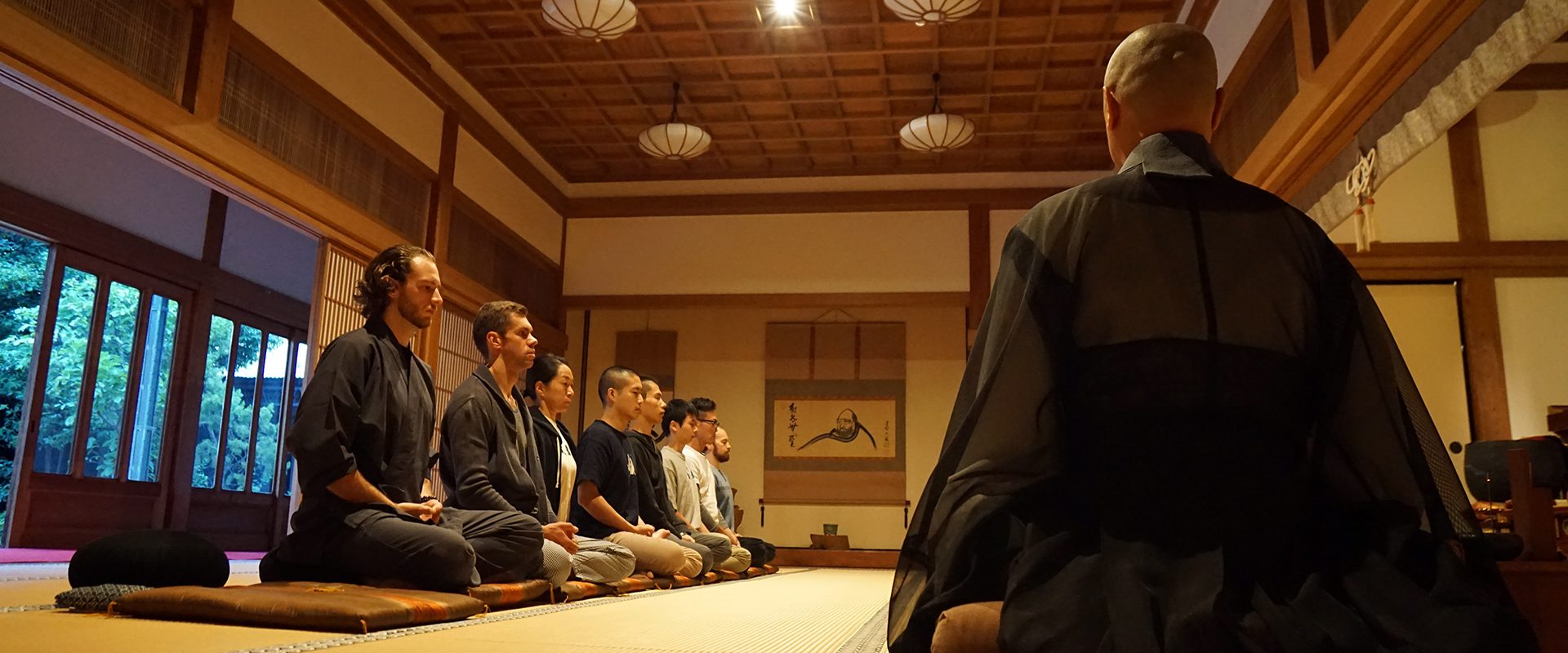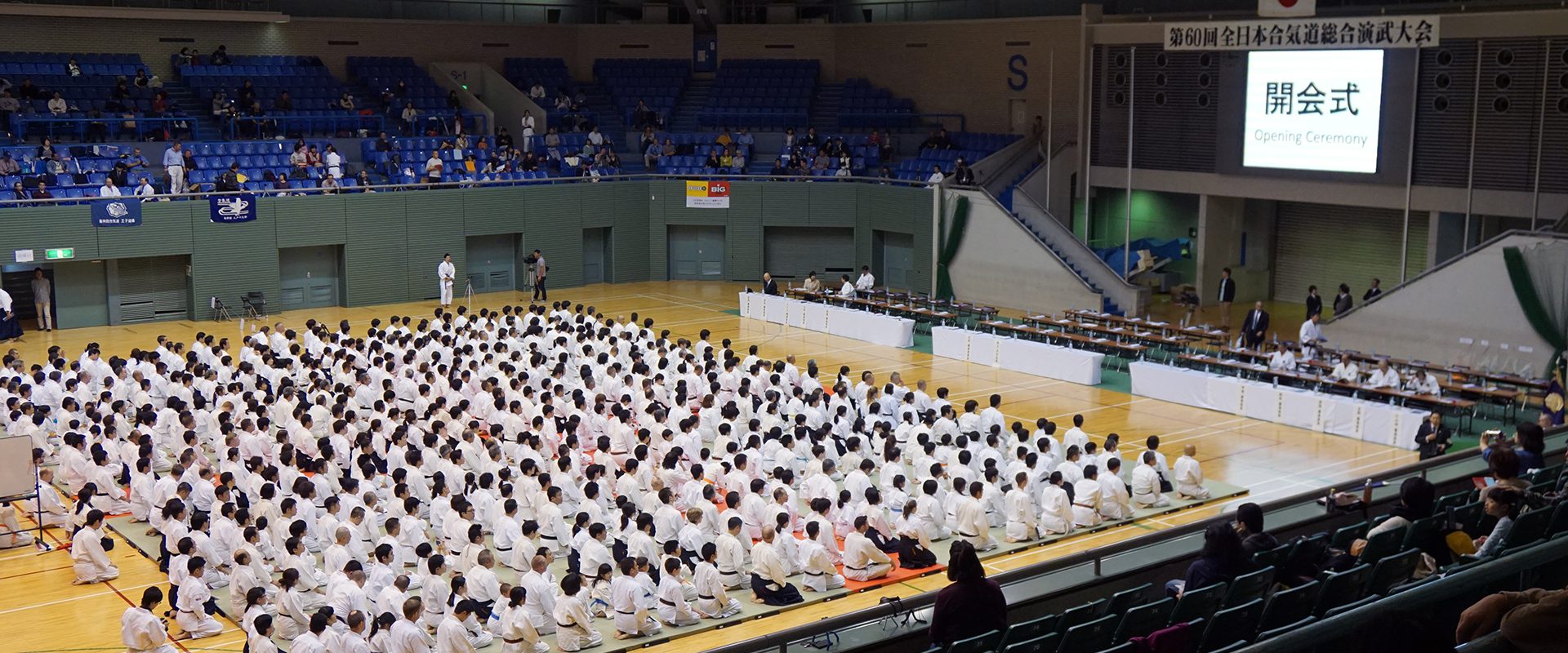コンテンツへスキップ
The Mugenjuku Kenshusei course begins in April and runs for 11 months.
Overview:
- The Mugenjuku Kenshusei course will take students, regardless of previous Aikido experience, all the way from the beginning basic movements to advanced techniques and jiyu-wza (freestyle). For students with no previous Aikido experience, it will be possible to reach black belt level. For those with previous experience, it will be possible to increase in rank. However, more than just teaching forms and movements, the students will also learn about the relationship between a strong center line, strong balance, and timing. They will learn how to use those together to create extremely powerful techniques. Mugenjuku Kenshusei course Students are expected to always behave in a proper manner showing the proper respect for teachers and other students. Aikido is not a competition, and this course is not designed to pit you against other students in a competition. Rather, it is designed to help the student challenge oneself to find their limits and learn how to work past them.
Aims of the course:
- To give an understanding of the basic principles of Aikido
- To provide an environment where committed students can do hard training
- To cultivate individual personal desire to train
- To cultivate an enjoyment of Aikido and Aikido training
- To teach all the basic techniques of Yoshinkan Aikido
- To recreate physical and mental limits
Qualifications and Course Guidelines:
- Application deadline February 1st
- A letter of recommendation from either a teacher, business associate, friend, or family member.
- A letter explaining why the student wants to participate in the Instructor Course and what they hope to achieve.
- A passport sized photo
- Dojo Mailing Address: 604-0842 Nakagyoku Nishioshikojicho 115-1. Decos Bldg Kyoto, Japan
- The applicant must be 18 years or older.
- The applicant must be in good health.
- Students must abide by Japanese Law at all times. (Those who do not will be expelled from the course)
- Students must follow dojo rules and etiquette at all times and always show the proper respect for instructors and other students.
- Some events will require formal dress( suit / dress ).
- No previous Aikido experience is necessary.
- There will be a course orientation approximately one week from the beginning of the course, attendance is mandatory. Students who are accepted to the course will be given full details later.
- Contact us
- *
- The first two months of the course will serve as a probationary period for all Kenshusei. Mugenjuku reserves the right to expel any student during the two month probationary period. After the probationary period, Mugenjuku may be able to provide assistance with applying for a Visa and Visa Sponsorship.
- **
- See the “Preparations before coming to Japan” section.
Typical Day:
- The students will arrive at the dojo before class time to clean the dojo and prepare themselves to begin training exactly at the class start time. The training will average for 4 hours a day separated with breaks in between. Training will be held more than 20 hours a week.
Getting around:
- Getting around in Kyoto is extremely convenient. Most people do just fine riding a bicycle around the city as it is very logically laid out and all streets run north / south or east /west. For rainy or snowy days, the bus and subway systems are quite extensive and efficient. Mugenjuku instructors will help students find out how to get to each dojo and will help with finding the correct buses / trains, however; it is the student’s responsibility to arrive to each class on time.
Preparations before coming to Japan:
- It is recommended that the applicant be in good physical health as the course will be physically taxing for even those who are in the best condition. Training intensively 5 days a week for one year is likely going to come as a shock to most people, especially in the beginning. It is recommended that the applicant begin a course of exercise before leaving for Japan. Please consider carefully your commitment to completing the course before you make the commitment to come to Japan. If a student becomes sick or injured during the course, the student will still be required to attend class and watch. If attendance is not possible, a doctor’s note will be required. If a student becomes severely ill or sustains a chronic or other serious injury that does not allow the student to complete the course, they must drop out. When the student has recovered, the student will be able to join the next available course.
- You will need to check with the Japanese Embassy in your home country for specific details about immigrating to Japan and make sure you are clear about everything before coming. Mugenjuku will not do this for you.
- It is also recommended that the prospective student study Japanese before coming. It is not at all necessary to be fluent to take the course, however; throughout the daily training and dojo activities, students will encounter situations where it will be helpful to speak and understand some Japanese. The student will also find their time outside of the dojo much more enjoyable if they can handle everyday tasks by themselves.
- *
- This is NOT a guarantee that Mugenjuku can and will sponsor your Visa.
- **
- Students who stay beyond their 90-day visa and do not change their status to a more permanent visa will be considered to be in violation of Japanese law and will be expelled from the course.
Course Fees:
- One month tuition for the program is 40,000 Japanese yen. Students may also pay their tuition all at one time.
- Fees that are paid monthly but must be paid before the beginning of the next month. Students who fail to do this will be expelled from the course. If any financial difficulties arise, the student must inform Mugenjuku immediately.
- For participants who have concerns about living costs, there is the possibility of financial assistance. Please feel free to talk to us about this.
Accommodations / Employment

